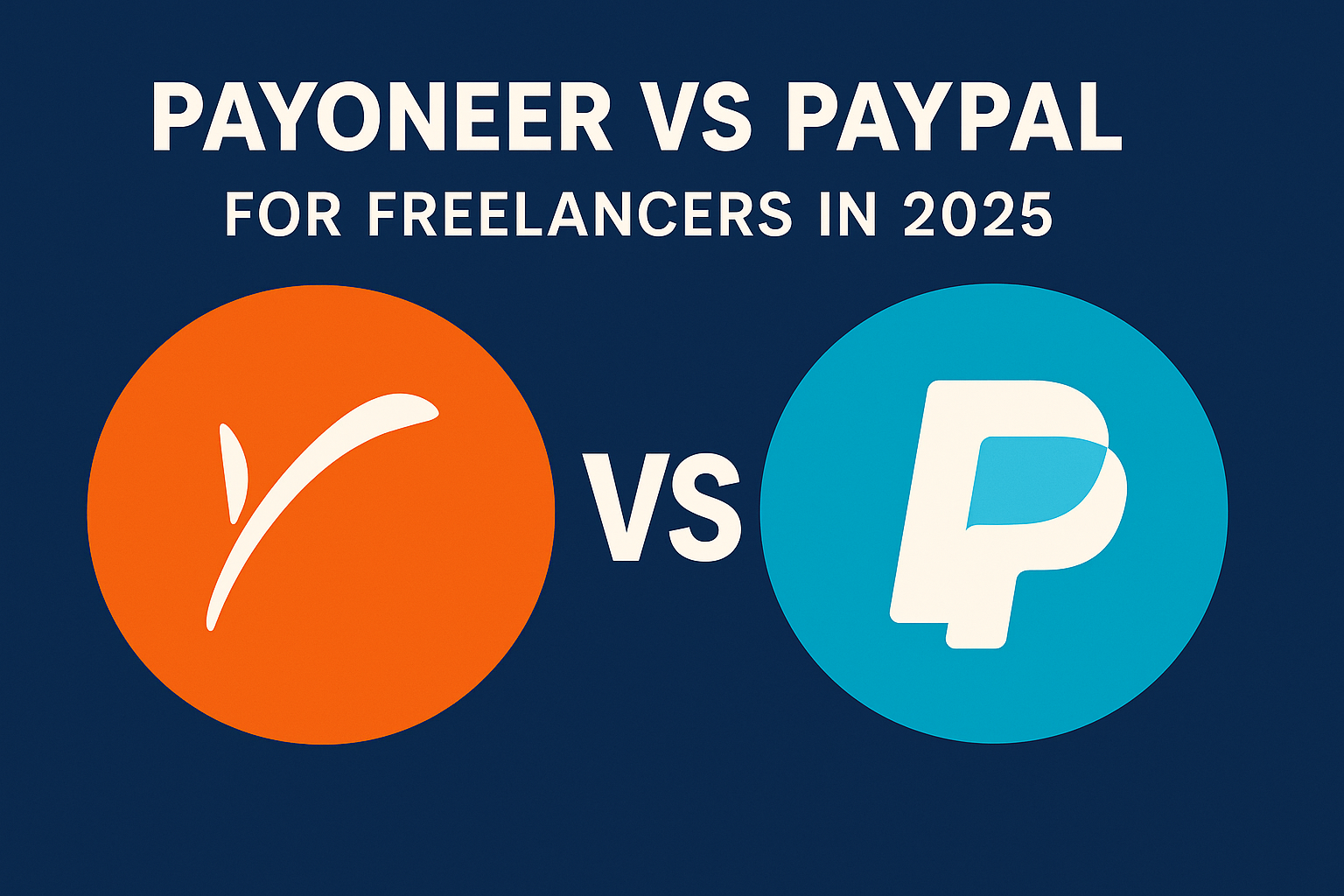Payoneer vs PayPal for Freelancers in 2025
Payoneer and PayPal remain two of the most widely used platforms for cross-border freelance payments. While both enable you to receive money from clients worldwide, they differ significantly in fees, speed, coverage, and use cases. This article provides a detailed comparison of Payoneer vs PayPal in 2025 — based on real freelance workflows.
Overview
- Payoneer — optimized for freelancers, agencies, and marketplace payouts. Strong integrations with platforms like Upwork, Fiverr, Amazon, and more.
- PayPal — consumer-first payment platform with global coverage, ideal for one-off client payments but costly for high-volume freelancing.
Fees & Costs
| Feature | Payoneer | PayPal |
|---|---|---|
| Receiving payments | Often free from marketplaces; 1% from direct US bank transfers | ~4.4% + fixed fee for international payments |
| Currency conversion | ~0.5–2% above market rate | ~3–4% above market rate |
| Withdrawals | Low fee to local bank; prepaid Mastercard available | Withdrawals to bank accounts free in some countries, fees apply elsewhere |
| Cards | Payoneer Mastercard, widely accepted | PayPal debit card (availability depends on region) |
Speed
- Payoneer: Marketplace disbursements often same-day; bank withdrawals take 1–3 business days.
- PayPal: Client payments appear instantly in your account; withdrawals to bank can take 1–2 business days.
Global Coverage
PayPal is available in 200+ countries and supports over 20 currencies. Payoneer covers 190+ countries but offers better local bank integrations in regions like Asia, Latin America, and Eastern Europe. For freelancers outside the US/EU, Payoneer often provides more reliable withdrawal options.
Best Use Cases
- Payoneer is best for:
- Freelancers working on Upwork, Fiverr, or Amazon
- Agencies handling multiple team payouts
- Users needing low-cost bank withdrawals
- PayPal is best for:
- Quick one-off payments from international clients
- Clients who don’t want to set up alternative platforms
- Smaller transactions where speed > cost
Security & Compliance
- Both require identity verification (KYC).
- Payoneer provides stricter compliance for business users.
- PayPal’s buyer/seller protection can be beneficial for disputes but often favors the buyer.
Final Recommendation
Most freelancers in 2025 use both services: PayPal for client convenience and Payoneer for cost-efficient, large, and recurring payouts. For direct marketplace earnings, Payoneer is a clear winner. For small one-time invoices, PayPal still dominates.
Get Started
To minimize fees and maximize flexibility, sign up for Payoneer and connect it with your freelance platforms.
Disclosure: This article contains affiliate links. We may earn a commission if you sign up via our Payoneer link, at no extra cost to you.





